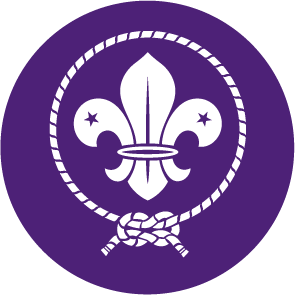
Badge bingo bonanza
You’ll need
- Pens or pencils
- Bag (for bingo tokens)
- Prizes (optional)
Before you begin
- Print out enough bingo cards so there’s one for each pair or small group. You could laminate the cards so it’s easier to use them again.
- Cut out the bingo tickets, fold each one in half, and put them in a bag (or another container, such as a tub or a hat).
- Decide whether you’ll use pens or counters to mark squares. Counters are ideal if you want to use the game again.
Play bingo
- Everyone should split into pairs or small groups. The person leading the game should give each small group a bingo card and a pen or pencil.
- Teams should look at the badges and try to figure out whether they’re Core Badges, Activity Badges, Staged Activity Badges, and Challenge Awards. They should look and see whether they can find where the badges go on their uniform.
- The person leading the game should take a ticket from the bag. They should read out the name of the badge, and put the ticket to one side so they can check people’s answers later.
- Each team should search their bingo card to see if they have that badge. If they have that badge on their card, they should cross it off or cover it.
- Everyone should repeat steps two and three until a team covers three in a row. They should call out ‘row’, the game should pause, and the person leading the game should check their card.
- Everyone should continue repeating steps two and three until a team covers their whole card. They should call out ‘bingo’, the game should pause, and the person leading the game should check their card. If they’re right, they’re the winners! Everyone should keep playing until several teams have completed their rows or whole card.
Reflection
This game needed everyone to work in teams to match the badge names with the images, and find out more about all of the different badges Beavers can earn. When people are working in a team to problem-solve, it can be easy to start talking over one another or only listen to the loudest person. How did teams make sure that everyone had the chance to suggest answers? Some teams may have taken it in turns to answer first; in others, the older or more experienced members may have helped the younger ones.
Were any badge images especially hard to match up with their names? How did people work out any badges that they didn’t know? Some things about the pictures (including the colours) may have helped. What Activity Badges or Challenge Awards would newer members like to try? Does anyone have any of them already? They could explain what they did to earn them.
Safety
All activities must be safely managed. You must complete a thorough risk assessment and take appropriate steps to reduce risk. Use the safety checklist to help you plan and risk assess your activity. Always get approval for the activity, and have suitable supervision and an InTouch process.
It’s up to you whether the bingo caller calls out the badge names or offers clues (such as ‘this badge encourages you to care for a pet’ for the Animal Friend Activity Badge, or ‘you’ll need to work together to earn this Challenge Award’ for the Teamwork Challenge Award).
Print the bingo cards as big as needed – you could stick together more than one piece of A4 paper if you need to. You could also use mime to describe the badge if that works better for anyone.
All Scout activities should be inclusive and accessible.
You could move from this activity into a Log Chew – each team could choose one Activity Badge, one Staged Activity Badge, and one Challenge Award they’d like to tackle.
